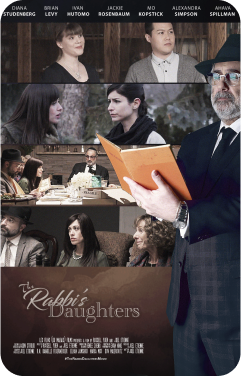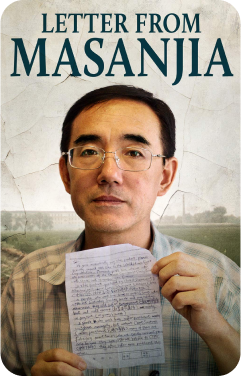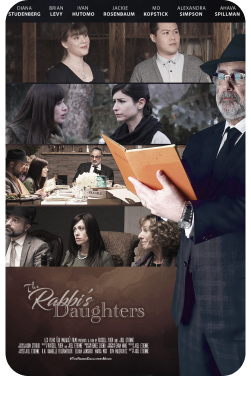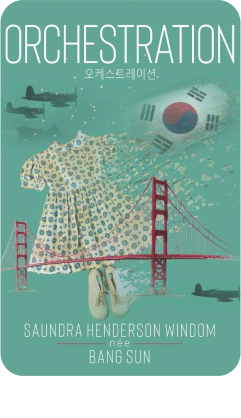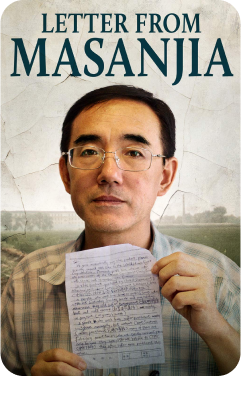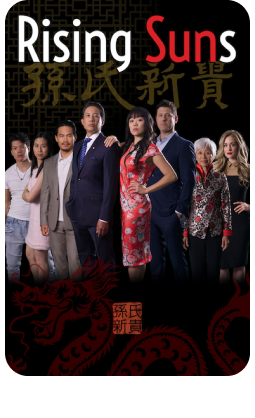
Orchestration
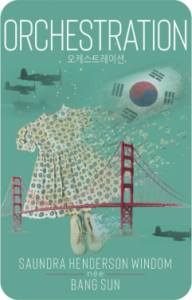
Based on the autobiography by Saundra Henderson Windom. Orchestration is the story of the lives of two women: Chang Bang Sun, the sick, starving and abandoned mixed-race war orphan born of a Black American GI father and a Korean mother; and Saundra Henderson Windom, the Korean American orphan who arrived in Compton in 1958 and had to become a Black American in her adopted middle-class family.
They are the same person, of course, but as she grew older Saundra never thought she would find that other part of herself – that little Korean girl who lived off sea snails and stolen candy from the village market. But through the orchestrations of life and the deep personal tragedy of the loss of her son Gibran, she is reunited with the ghost of herself and finally finds the invisible Korean family she has longed to connect with.
The film is a symphony of Bang Sun and Saundra’s lives. Four movements: her early childhood in war ravaged Korea – growing up in Compton in the ‘60’s – college and career as a teacher and principal – and finally, the years of loss and being found. Furthering the musical theme and underpinning, the film will be scored by multi-Grammy winner and Academy Award nominee and Sandy’s son, Amir Windom.
Orchestration is a story of resilience, drive, spirit and above all faith, but it is also a mystery story and Saundra has to unravel the secrets of her own life as she lives it.
The first phase of her life in Korea is a patchwork of sketchy yet vivid memories of a young boy who took care of her on the streets and a mysterious woman with red lipstick who just might have been her mother. She survives starvation and disease and ends up in an orphanage for Korean-American mixed race babies, before being adopted by a devout and kind American family from Compton, where Chang Bang Sun becomes Saundra Henderson and quickly transforms into a normal American teenager facing all the travails of high school. She thinks about her Korean past but after her mother bans all mention of Korea, her life there becomes dreamlike and she questions if any of it really happened. Saundra is very successful at college and becomes a teacher, and a door-to-door encyclopedia salesperson, and an insurance adjuster, and a Spanish teacher as she also navigates her own poor romantic choices and a growing and active family. But as her marriage breaks down and she embarks on a life of a single mom, she begins to wonder again about her past and the family she never knew in Korea. But it’s not until the death of her first born, Gibran, and the DNA tests she takes to find out how many grandchildren she has, that she is able to circle back to the past and claim her true identity – a Black American, yes, but Korean too.
It takes Saundra a life time to find her truth, but she believes that all the seemingly random events of her life have been orchestrated by a higher power to bring her home to herself and that her son was destined to help her complete her journey. The film is about the arc of an amazing journey, but its underlying current is this theme of orchestration – how the unknowable machinations are connected and directed and take us where we are meant to be.
Orchestration spans seven decades – a life of many lifetimes. It is the simple story of a life well lived. Of hardship that became good fortune. Of hard work that led to success but also to disappointment and great loss. Of deep and abiding faith that is tested by the cruelty in the world. It is a story of resilience, drive, spirit and above all faith.
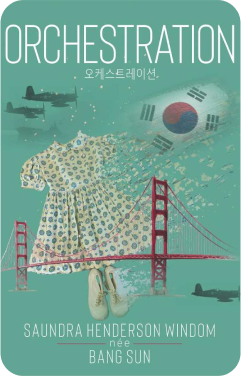
Based on the autobiography by Saundra Henderson Windom. Orchestration is the story of the lives of two women: Chang Bang Sun, the sick, starving and abandoned mixed-race war orphan born of… READ MORE

